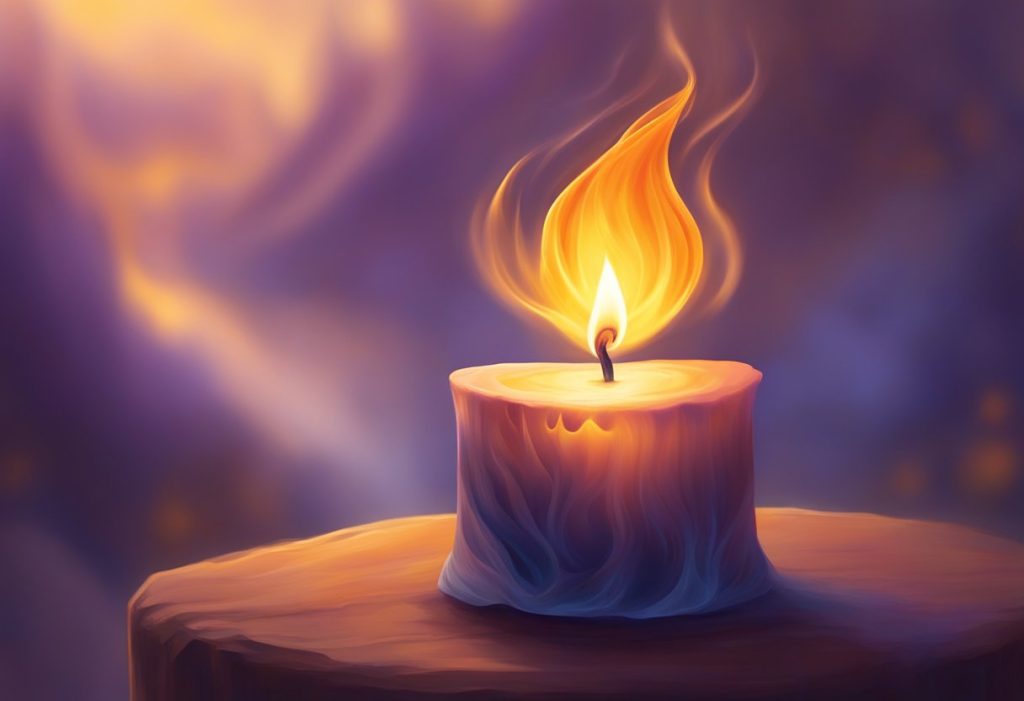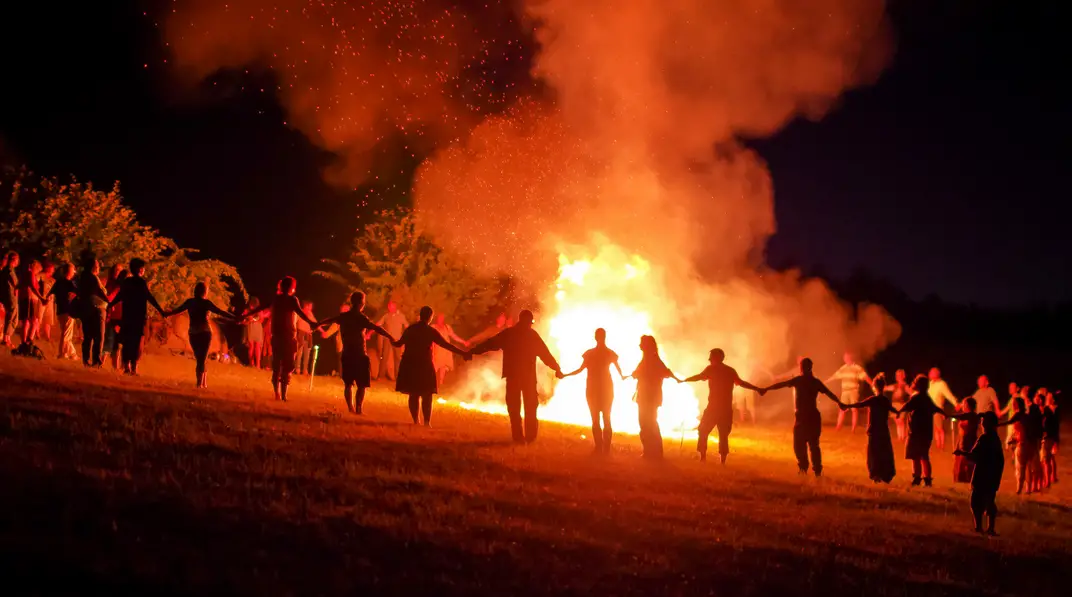Fire spirituality is closely intertwined with the core elements of nature and has been a vital part of human experience across various cultures and traditions. Recognized for its dual nature of creation and destruction, fire signifies transformation and is often seen as a pathway to purification and renewal. I have come to understand that the spirituality of fire stretches far beyond its physical warmth and light, stepping into the realm of symbolic meanings and spiritual practices. It serves as a compelling symbol for various concepts such as passion, change, and enlightenment.

In my exploration, I’ve learned that fire’s omnipresence in spiritual ceremonies speaks to its deep-seated role in human consciousness. Its presence in rituals and meditations is a testament to its power to bridge the physical and the spiritual realms. By incorporating fire into spiritual practices, one can harness its transformative energy for personal growth, invoking a sense of reverence and connection to the divine. The spirituality of fire, therefore, is a multifaceted concept that touches upon the innermost aspects of personal and communal experiences, offering a powerful tool for introspection and evolution.
Key Takeaways
- Fire signifies transformation, purification, and connection to the divine.
- Incorporating fire in rituals can facilitate personal and spiritual growth.
- The spirituality of fire is a key component of human consciousness across cultures.
Understanding Fire Spirituality
In my exploration of spiritual traditions, fire takes a central stage, symbolizing both destruction and renewal. It’s a bridge between the tangible and the ethereal, a tool for transformation and enlightenment.
Historical Context
Historically, fire has been integral to my understanding of spirituality. Ancient rituals and ceremonies harnessed fire as a means for purification and as an offering to deities. I have discovered that many cultures view fire as a manifestation of the divine, a conduit for communication between worlds. For example, in Vedic traditions, the ritual of Agnihotra involves offering ghee and grains into a fire, which is believed to purify the atmosphere and have a healing effect on both the participants and the environment.
Symbolic Significance
The symbolic significance of fire in spirituality is rich and multifaceted. It often represents wisdom, as the flames illuminate the darkness. This notion echoes through spiritual texts and teachings where fire signifies enlightenment—the burning away of ignorance to reveal truth. In my contemplation, fire is also a metaphor for passion and motivation, the internal spark that ignites the pursuit of spiritual ascension. Just as fire transforms wood into ash, it symbolizes the potential for profound transformation within the individual, taking the raw material of our experiences and converting them into spiritual insight.
Practices and Rituals
In my exploration of fire spirituality, I’ve discovered that the practices and rituals often serve as avenues for purification, transformation, and connection with the divine. These are conducted with great reverence for fire’s power and spiritual significance.
Modern Applications
I find that in today’s spiritual landscape, fire is central to various contemporary practices. Many use fire reading as a means of divination, examining flames and embers to glean insights about the future or one’s spiritual path. This is a modern interpretation of an ancient tradition, often coupled with meditation and reflection. The spiritual community embraces fire’s transformative power, using it symbolically to represent life changes and personal growth.
Techniques and Meditations
When focusing on techniques, I practice meditations that involve visualizing fire. This can be a potent exercise to ignite internal change and harness fire’s spiritual meaning. I sit quietly, imagine the warmth and energy of fire, and let it symbolically burn away any negativity from my mind and spirit. This technique requires a controlled environment where fire is not physically present but is a vivid part of the meditative visualization.
As part of my rituals, the act of lighting candles or a small, secure bonfire becomes a practice of setting intentions. As the flames rise, so do my hopes and desires, transmuted into the universe through fire’s ascending energy. It’s a moment where I connect deeply with fire’s raw and primeval essence, which has been a guide for human spirituality across time.
Frequently Asked Questions
In exploring fire spirituality, I’ll address some of the most common queries. These are aimed at providing a deeper understanding of how fire influences spiritual practices and symbolic interpretations across different cultures.
What is the significance of fire in spiritual practices?
In spiritual practices, fire often symbolizes transformation and renewal. It’s seen as a powerful element that can purify and refine the spirit, akin to exploring spiritual symbolism.
How is fire represented in different religious contexts?
Fire represents a range of attributes including divinity, wisdom, and cleansing across various religions. For instance, in Hinduism, it acts as a mediator between humans and the divine, playing a central role in rituals like Yagna (sacred fire ceremony).
What are the interpretations of experiencing a ‘body on fire’ in a spiritual sense?
Feeling a ‘body on fire’ in a spiritual sense often points to an intense awakening or inner transformation. This sensation may be related to igniting the spirit and fostering personal growth.
What insights do spiritual traditions provide regarding the occurrence of a house fire?
Spiritual traditions may interpret a house fire as a force of both creation and destruction. It might be viewed as a sign for a new beginning, urging one to let go of the past and rebuild from the ashes.
In spiritual terms, what does the presence of red fire signify?
Red fire in spiritual terms often signifies passion, energy, and vitality. It’s associated with strong emotions and can represent the activation of life force, urging one towards action.
How do spiritual beliefs describe a person with a ‘fire spirit’?
A person with a ‘fire spirit’ is typically described as being charismatic, passionate, and dynamic. They may possess a strong will and an innate ability to inspire and motivate others, embodying the essence of creation and destruction.

